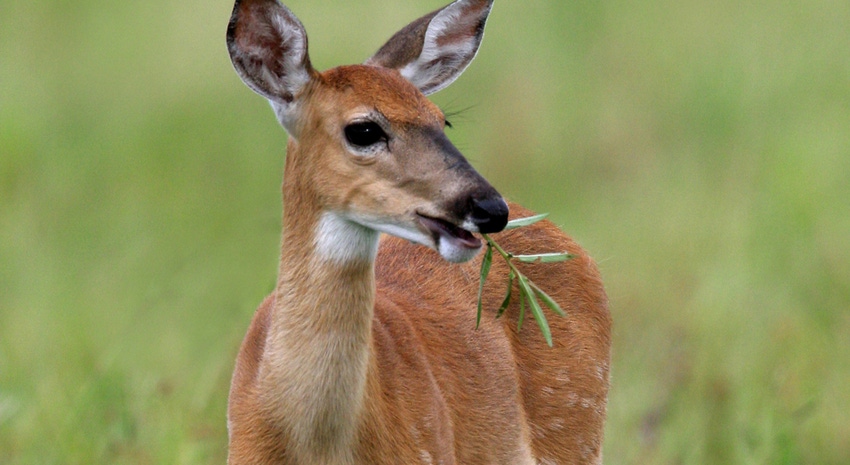State taking steps and following plan to deploy containment strategy.
December 19, 2019

Chronic wasting disease (CWD) has been detected in a free-ranging, 5.5-year-old white-tailed doe between Del Rio, Texas, and the Amistad Reservoir, making it the first confirmed case of the disease in Val Verde County.
The Texas Parks & Wildlife Department (TPWD) and Texas Animal Health Commission (TAHC) are implementing a containment strategy designed to limit the spread of CWD from the affected area and better understand the distribution and prevalence of the disease, TPWD said in an announcement.
The state has set up containment and surveillance zones in the area, which borders the Rio Grande River and the international border with Mexico.
“Because eradication is thought to be impossible once CWD becomes established in a population, it is imperative that we work with other agencies, landowners and hunters to contain this disease within a limited geographic area and prevent it from spreading further among Texas deer populations,” TPWD wildlife veterinarian Dr. Bob Dittmar said. “This containment strategy is particularly urgent considering this detection happened in the middle of the general deer season.”
TPWD executive director Carter Smith added, “This temporary emergency action will allow us to try to contain CWD within the affected zone while we collect more information and gather more data. The protection of our state’s big game resources is of vital importance, and we are grateful to hunters, landowners and local officials for their cooperation in following these rules and spreading the word in their community to help keep the disease contained.”
CWD among cervids is a progressive, fatal neurological disease that commonly results in altered behavior due to microscopic changes made to the brain of affected animals. An animal may carry the disease for years without outward indication, but in the latter stages, signs may include listlessness, lowering of the head, weight loss, repetitive walking in set patterns and a lack of responsiveness. To date, there is no evidence that CWD poses a risk to humans or non-cervids. CWD is one of the prion-associated diseases such as transmissible spongiform encephalopathy.
"Though CWD has not been discovered in exotic susceptible species in Val Verde County, our agency is working proactively alongside our TPWD partners to achieve enhanced surveillance for all susceptible species in the identified zones," said Dr. Andy Schwartz, TAHC executive director and state veterinarian.
TPWD noted that the first case of CWD in Texas was discovered in 2012 in free-ranging mule deer in the Hueco Mountains of far west Texas. The disease has since been detected in free-ranging mule deer, white-tailed deer and elk in the northwestern Texas Panhandle.
You May Also Like


.png?width=300&auto=webp&quality=80&disable=upscale)
